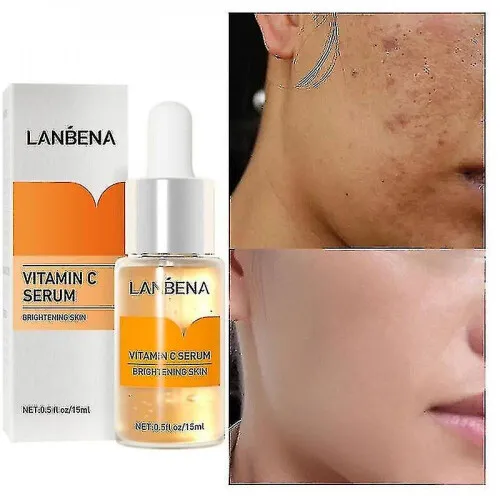What is Vitamin C and How Does it Work for Whitening?
Vitamin C, also known as ascorbic acid, is a potent antioxidant that plays a crucial role in skin health and appearance. It’s not just a dietary supplement; it’s a skincare powerhouse with remarkable benefits, particularly when it comes to skin whitening. This essential nutrient works by interfering with melanin production, the pigment responsible for skin color. By inhibiting tyrosinase, an enzyme required for melanin synthesis, Vitamin C helps to lighten existing dark spots, even out skin tone, and prevent the formation of new areas of hyperpigmentation. Its efficacy has made it a cornerstone ingredient in various whitening treatments, promising a brighter, more radiant complexion.
Understanding Vitamin C for Skin
Understanding the nuances of Vitamin C is crucial for appreciating its role in skin whitening. Vitamin C comes in various forms, each with different levels of stability and effectiveness. L-ascorbic acid is the most potent and well-researched form, but it can be unstable and degrade quickly when exposed to air and light. Other derivatives like sodium ascorbyl phosphate, magnesium ascorbyl phosphate, and ascorbyl palmitate are more stable but may require conversion to L-ascorbic acid to exert their effects. When used in skincare, Vitamin C is typically found in serums, creams, and lotions, designed to be absorbed into the skin, where it can work its magic.
The Science Behind Vitamin C’s Whitening Effects

The science behind Vitamin C’s skin-whitening abilities is fascinating. Melanin, the pigment responsible for skin color, is produced by melanocytes. Tyrosinase, an enzyme, is essential for melanin synthesis. Vitamin C acts as an inhibitor of tyrosinase, thereby reducing melanin production. By reducing melanin, existing dark spots and hyperpigmentation begin to fade, revealing a brighter and more even skin tone. In addition to inhibiting melanin production, Vitamin C also boosts collagen production, which helps to maintain skin elasticity, further contributing to a youthful, radiant appearance. Research consistently shows that Vitamin C can effectively reduce melanin synthesis, which makes it a key ingredient in skin-whitening treatments.
Benefit 1 Enhanced Skin Brightening
One of the primary benefits of Vitamin C is its ability to enhance skin brightening. The regular use of Vitamin C treatments can lead to a noticeable reduction in dullness, revealing a more luminous complexion. This brightening effect is achieved through its ability to inhibit melanin production, which helps to fade dark spots caused by sun damage, acne scars, and other forms of hyperpigmentation. This is why many people incorporate Vitamin C into their daily skincare routine, as it combats uneven skin tone, resulting in a more radiant and youthful appearance. This benefit is further enhanced by the fact that Vitamin C is a powerful antioxidant, which helps to protect the skin from environmental stressors that can lead to premature aging and further skin damage.
How Vitamin C Reduces Hyperpigmentation
Hyperpigmentation, characterized by dark spots or patches on the skin, is often caused by excessive melanin production. Vitamin C works at a cellular level to combat this issue. As mentioned earlier, it inhibits tyrosinase, an enzyme vital for melanin synthesis. By reducing the activity of tyrosinase, Vitamin C decreases the amount of melanin produced, leading to a gradual fading of dark spots and an overall more even skin tone. Consistent use of Vitamin C can effectively target and diminish hyperpigmentation, offering a safer and more natural alternative to harsh chemical treatments. This targeted approach allows for a more gentle yet effective treatment of skin discoloration.
Benefit 2 Powerful Antioxidant Protection

Vitamin C is a potent antioxidant, meaning it neutralizes free radicals. These unstable molecules can cause significant damage to skin cells, leading to premature aging, fine lines, and dark spots. By scavenging these free radicals, Vitamin C protects the skin from environmental damage caused by sun exposure, pollution, and other stressors. This protective action not only helps to prevent further damage but also supports the skin’s natural repair processes. Incorporating Vitamin C into a skincare routine is like having a shield against environmental aggressors, preserving a youthful and healthy complexion. This preventative action is one of the most important and beneficial properties of Vitamin C.
Vitamin C’s Role in Protecting Against Free Radicals
Free radicals are unstable molecules that can damage skin cells, leading to premature aging, wrinkles, and hyperpigmentation. Vitamin C neutralizes these free radicals, protecting the skin from their harmful effects. This antioxidant action helps to minimize the visible signs of aging and maintains the skin’s youthful appearance. The antioxidant properties of Vitamin C are essential for preventing further damage, thus, helping to maintain the skin’s health. By neutralizing free radicals, Vitamin C not only protects against future damage but also supports the repair of existing damage, leading to a more radiant and healthy complexion. This protective action is a cornerstone of Vitamin C’s benefits, contributing significantly to its anti-aging and skin-brightening properties.
Benefit 3 Increased Collagen Production
Collagen is a protein that provides structure and firmness to the skin. Vitamin C is a key cofactor in collagen synthesis, meaning it is essential for the production of this vital protein. By boosting collagen production, Vitamin C helps to improve skin elasticity, reduce the appearance of fine lines and wrinkles, and promote a more youthful complexion. This benefit not only enhances the skin’s appearance but also contributes to its overall health and resilience. The increased production of collagen leads to a more plump and firm skin structure, making it a key component of anti-aging and skin rejuvenation treatments. This internal process provides a noticeable and long-lasting improvement in skin texture and appearance.
The Importance of Collagen for Skin Health

Collagen is the building block of healthy skin, providing structure and elasticity. As we age, collagen production naturally declines, leading to wrinkles, sagging skin, and other signs of aging. Vitamin C helps to stimulate collagen production, which supports skin’s firmness and elasticity. By boosting collagen synthesis, Vitamin C helps to reduce the appearance of fine lines and wrinkles, improve skin texture, and maintain a youthful complexion. The importance of collagen is a key component of youthful skin, and Vitamin C plays a crucial role in maintaining its health. This is one of the major ways that Vitamin C promotes a healthy, radiant skin.
Benefit 4 Reduced Inflammation
Inflammation is a major contributor to various skin problems, including acne, eczema, and premature aging. Vitamin C possesses anti-inflammatory properties, helping to soothe irritated skin and reduce redness. By mitigating inflammation, Vitamin C can prevent further skin damage and promote a healthier complexion. This anti-inflammatory effect is particularly beneficial for those with sensitive skin or conditions like rosacea. This helps soothe the skin and reduce the likelihood of flare-ups. The reduction in inflammation also supports the skin’s healing processes, helping to heal and promote the skin’s healthy appearance.
The Link Between Inflammation and Skin Discoloration
Inflammation can trigger an overproduction of melanin, leading to skin discoloration and dark spots. By reducing inflammation, Vitamin C helps to prevent the formation of new hyperpigmentation and can potentially lighten existing dark spots. This makes Vitamin C an important part of the treatment plan for various skin conditions. The anti-inflammatory properties of Vitamin C make it a valuable tool for improving skin tone and clarity. This is a vital benefit of Vitamin C that protects the skin from a variety of issues that can alter the tone and health of the skin.
Benefit 5 Improved Skin Texture

Vitamin C’s multifaceted benefits contribute to improved skin texture. Through its antioxidant, collagen-boosting, and anti-inflammatory properties, Vitamin C helps to smooth out fine lines, reduce pore size, and create a more even skin surface. Regular use of Vitamin C can lead to a noticeable improvement in skin texture, providing a smoother, more refined complexion. This is another of the significant benefits of Vitamin C, helping improve the overall health and appearance of the skin. This leads to a more radiant and healthy appearance.
Achieving a Smooth Complexion with Vitamin C
Vitamin C is a remarkable ingredient that improves the texture of the skin. Its antioxidant properties protect against environmental damage that causes uneven texture, while its collagen-boosting effects support a firmer, smoother skin surface. The anti-inflammatory benefits also help to minimize irritation. Regular use of Vitamin C can transform the skin, promoting a smoother, more even, and radiant complexion. This is a key part of its overall benefits and is a major reason many people turn to Vitamin C in their skincare routines.
Types of Vitamin C for Whitening Treatments
Different forms of Vitamin C are used in whitening treatments, each with its own characteristics. L-ascorbic acid is the most researched and potent form, but it can be unstable. Derivatives such as sodium ascorbyl phosphate, magnesium ascorbyl phosphate, and ascorbyl palmitate are more stable and gentler, making them suitable for sensitive skin. These derivatives offer extended shelf life and gradual release, reducing the risk of irritation. Understanding the different types of Vitamin C helps to choose the most suitable product for individual skin needs and sensitivities. These can be found in a range of serums and creams, each offering different benefits.
In conclusion, Vitamin C is a multifaceted ingredient that offers numerous benefits for skin whitening. From enhancing skin brightness and providing antioxidant protection to boosting collagen production and reducing inflammation, Vitamin C is a powerful ally in achieving a brighter, healthier complexion. By understanding its mechanisms and incorporating it into a consistent skincare routine, individuals can unlock the full potential of Vitamin C and enjoy radiant, more even-toned skin. The benefits are plentiful and have been supported by numerous studies.
